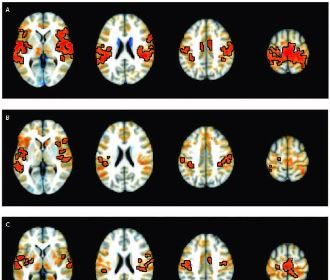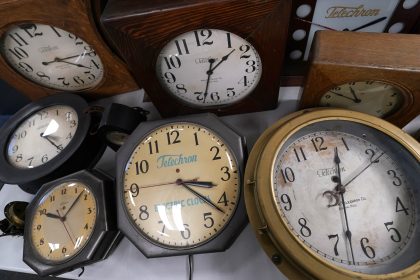Hutchinson Raises Awareness of Child Abuse Every Chance She Gets

DES MOINES, Iowa — Former Arkansas Gov. Asa Hutchinson was still days away from a disappointing sixth place finish in the Iowa caucuses as he and his wife Susan made their way through the caucus media center inside the cavernous Iowa Events Center.
Stopping to chat with reporters as they made their way around the room, the couple almost glowed with a style that was a throwback to an earlier era when some aspects of politics still had a bit of glamor to them.
The former governor, of course, was concerned about turnout for the caucus, especially with a weather forecast that called for a blizzard and temperatures plummeting to well below zero as Iowans headed to their respective caucus sites.
No, he didn’t have a specific benchmark he needed to reach in order to stay in the race, but he admitted fundraising was a challenge.
“We’ve got to have a bump of some kind coming out of Iowa that allows us to continue in this race,” he said.
As he moved on to another clutch of reporters, hoping a few key media hits would drum up some last-minute support for his candidacy, Susan Hutchinson lingered behind.
After some small talk, she asked, “Have you ever heard of the Children’s Advocacy Centers?”
The organization, which Hutchinson became involved with long before she became Arkansas’ first lady, helps abused and neglected children by giving them the attention, protection and medical aid they need at a time of intense trauma and physical injury.
“As many as 700,000 children are abused across America each year,” she said, her face now a study in sadness.
Hutchinson quickly explained she’d become interested in the Children’s Advocacy Centers after political friends asked her to sit on its board and gave her a tour of its facilities.
Then, out of the blue, she heard from a friend from Fort Smith, Arkansas, who shocked Hutchinson by saying she had suffered abuse as a child and had struggled her entire adult life to overcome it.
“She told me her dad had abused her and a little bit about what she went through, but the thing that really touched me was when she said she and her sister agreed not to tell their mom because they knew it would make her cry.
“Instead, they went to church and prayed that their daddy would die, so that their mom could meet a nice man,” she said.
Hutchinson was visibly upset by the recollection, and briefly appeared to choke back a tear.
“It’s so sad, but it also shows you how the mind of a child often works in these situations — they rationalize and they try to rationalize a remedy, a solution, without hurting anybody,” she said.
Hutchinson then recalled her experience with a woman she met after she got involved with the Children’s Advocacy Centers. In this case, the woman, at the time in her 60s, “fell apart right in front of me.”
“I was telling her, as part of an interview, what I was doing to help the children in these situations and the kinds of stories I was hearing from them, when she suddenly fell apart and wound up curled up in a fetal position — in front of like, five of her co-workers.
“So we cut the interview short and went over to her and hugged her, and she told me just a little bit about the abuse she’d suffered as a child — something she’d never told anybody,” Hutchinson said. “Then she went on to tell me about a second incident she’d had, where she was raped by a boyfriend at 17.
“And she said she kept that a secret too because her father and brother were in law enforcement and she knew how much they loved her, so she was sure if they found out they just would have killed the guy who had raped her and wind up in prison themselves.
“So she rationalized, ‘I’ll protect them.’
“I think that’s one of the hardest things about addressing this issue,” Hutchinson said. “The victims often try to ‘fix’ the situation themselves, and if not that, they blame themselves or simply cower in extreme fear.
“This is one thing I wish the juries that hear the inevitable cases understood, but they really don’t, and, as a result, in many instances, the people that do these loathsome things are set free to find other victims,” she said.
Among the things the Children’s Advocacy Centers do to level the playing field and get justice for the victims is to conduct videotaped interviews with them in a nonthreatening setting, plumbing their memories for details they would likely not remember if the interview was conducted by someone in law enforcement or a prosecutor’s office.
“We have the authorities looking over our shoulders, of course, but we’re the face the victim sees,” she said.
“And by working with the authorities we know the kinds of pertinent information they need to successfully prosecute a case,” she said. “For instance, they need timelines, dates and times, things that children simply might not be cognizant of.
“For instance, they might remember that they weren’t in school the day something happened. Or that they were at the swimming pool or something like that. And we find ways to help them identify the when and other details.”
Hutchinson said one reason the organization is often more successful at mining these details is the interviews and settings they take place in are as nonthreatening as they can be.
“We’re not intimidating because we make no decisions,” she said. “We don’t decide what’s going to happen to them or happen next or anything like that. We’re simply recording a videotape and handing it over to the authorities.”
Hutchinson said by getting recollections down on videotape in detail, it saves everyone involved from having to go over the victim’s stories time and time again.
And that means the victims can concentrate on recovery sooner rather than later.
“The recovery part of this is mainly counseling, something called cognitive behavioral therapy,” Hutchinson said.
“Basically the therapy entails focusing on what was done to them, but walking them though it in such a way that helps them see it in a different context and helps them come up with a more correct picture of the situation for themselves.
“Because there is no doubt that they are going to blame themselves and there’s no telling what the pedophile told them to keep control of them,” she said.
“Our role in getting them through this is often simply [helping them understand] that what they were told to believe by the predator was a lie and they can let go of the fear and other negative feelings they’ve been holding on to.
“The other thing we’ve done is helped prosecutors tell their stories,” Hutchinson said.
“I mean, prosecutors have a lot of discretion about the resources they can use to make their case to a jury. They no longer have to fall into the trap of this person said this and this one said that.
“We can connect them with experts who can specifically explain, ‘This is how a child evaluates a situation. Now, does this make sense to you and me as adults? No, but it makes perfect sense to them.’
“That’s an incredibly powerful concept to convey to a jury. So is the reality that words don’t mean the same things to a child they do to an adult — or even to a three-year-old as compared to an older child.
“The reality is words have different assigned definitions at different points in our lives. And if we can get that across to the jury, if prosecutors and everyone else involved adheres to this game plan, we can get to the truth and most likely get a conviction and get that pedophile off the street.
“That’s important,” Hutchinson said. “Not just to the person they victimized in the past, but to the person they’re going to victimize in the future. Because these individuals don’t limit themselves. They are always in process, looking for the next victim. Even if it takes years.
“The scariest thing is the wolf in sheep’s clothing,” she continued. “The pedophile who seems just like you or me, but who can walk into a room full of people they’ve never seen before and pick out who has been victimized before and that’s who they zero in on, the one person in the room likely to react to this predation by saying, ‘This must just be who I am. God must not care about me.’”
Hutchinson said being the victim of a predator is for most “a very dark, heavy, damaging secret” that has tremendous repercussions later in life.
“It has a terribly adverse effect on both mental and physical health,” she said. “People suffer from high blood pressure, some are stricken with cancer and probably the most prevalent thing is living a life in a state of constant dysfunction.
“For instance, the woman I spoke about who was abused as a child and then raped as a teen spent many years in an abusive marriage because she thought that was what she deserved. She thought that somehow she was a bad person and that’s why these things happened to her,” she said.
“That’s why it is so incredibly important to get to these kids and snatch them out of harm’s way,” Hutchinson said.
“When you can do that, the changes that occur in their lives — for the better — are truly miraculous,” she said.
With that, her husband Asa returned and the couple prepared to brave the cold outside.
But Susan Hutchinson had one more thing to say.
“Those miraculous outcomes, those are what keep our counselors and interviewers going … because they know they can get them to the other side of this evil,” she said.
Dan can be reached at [email protected] and @DanMcCue

























